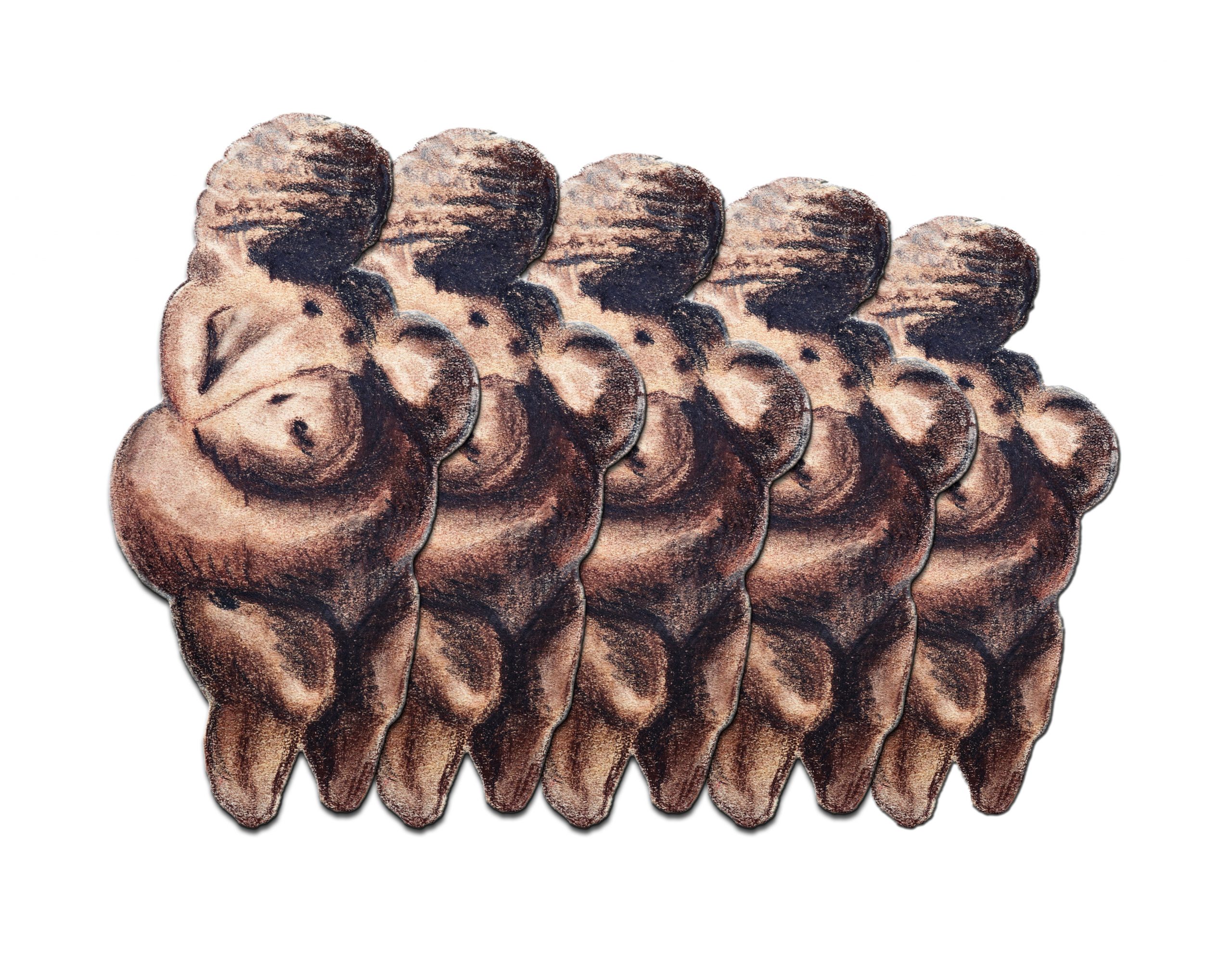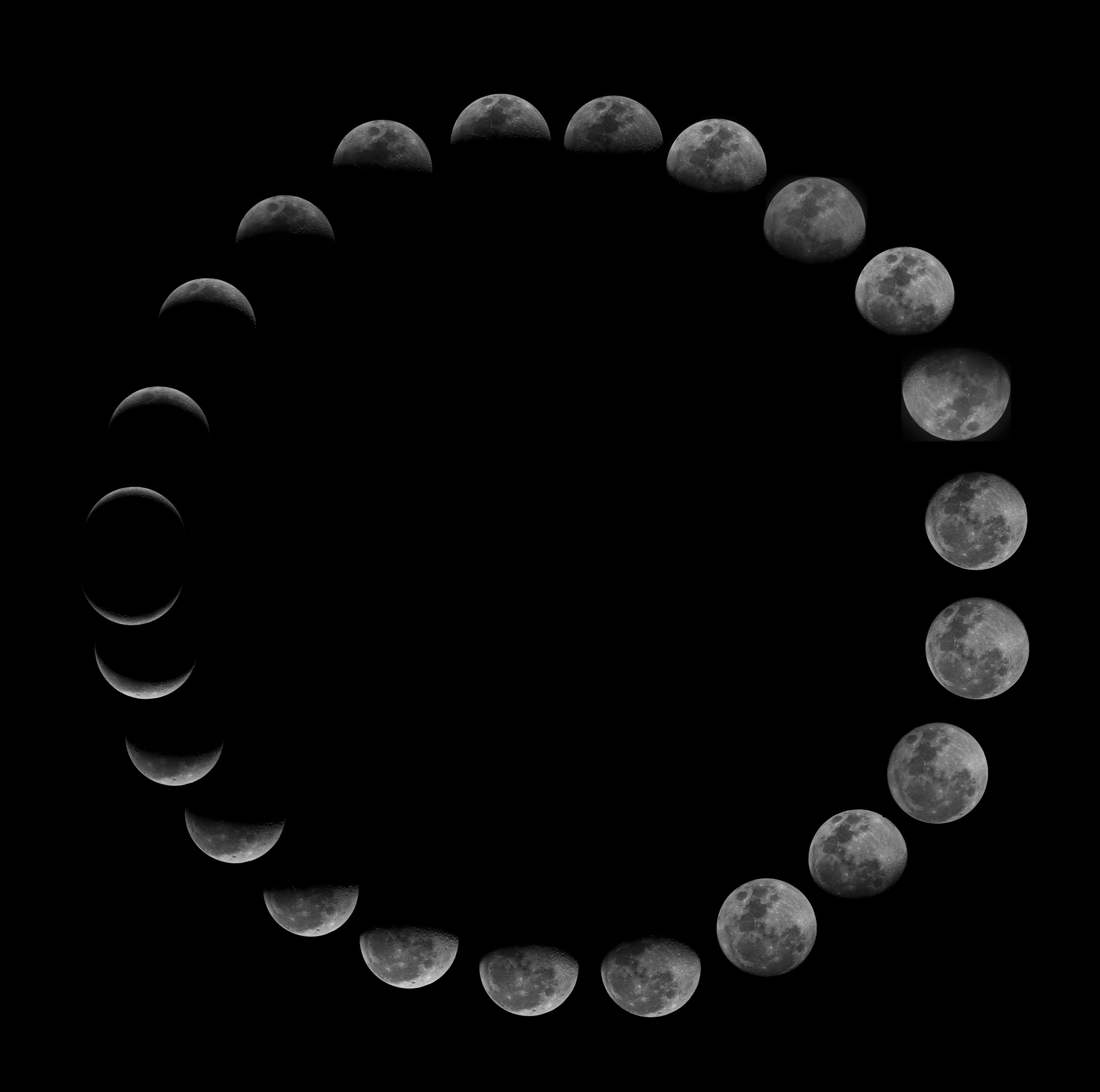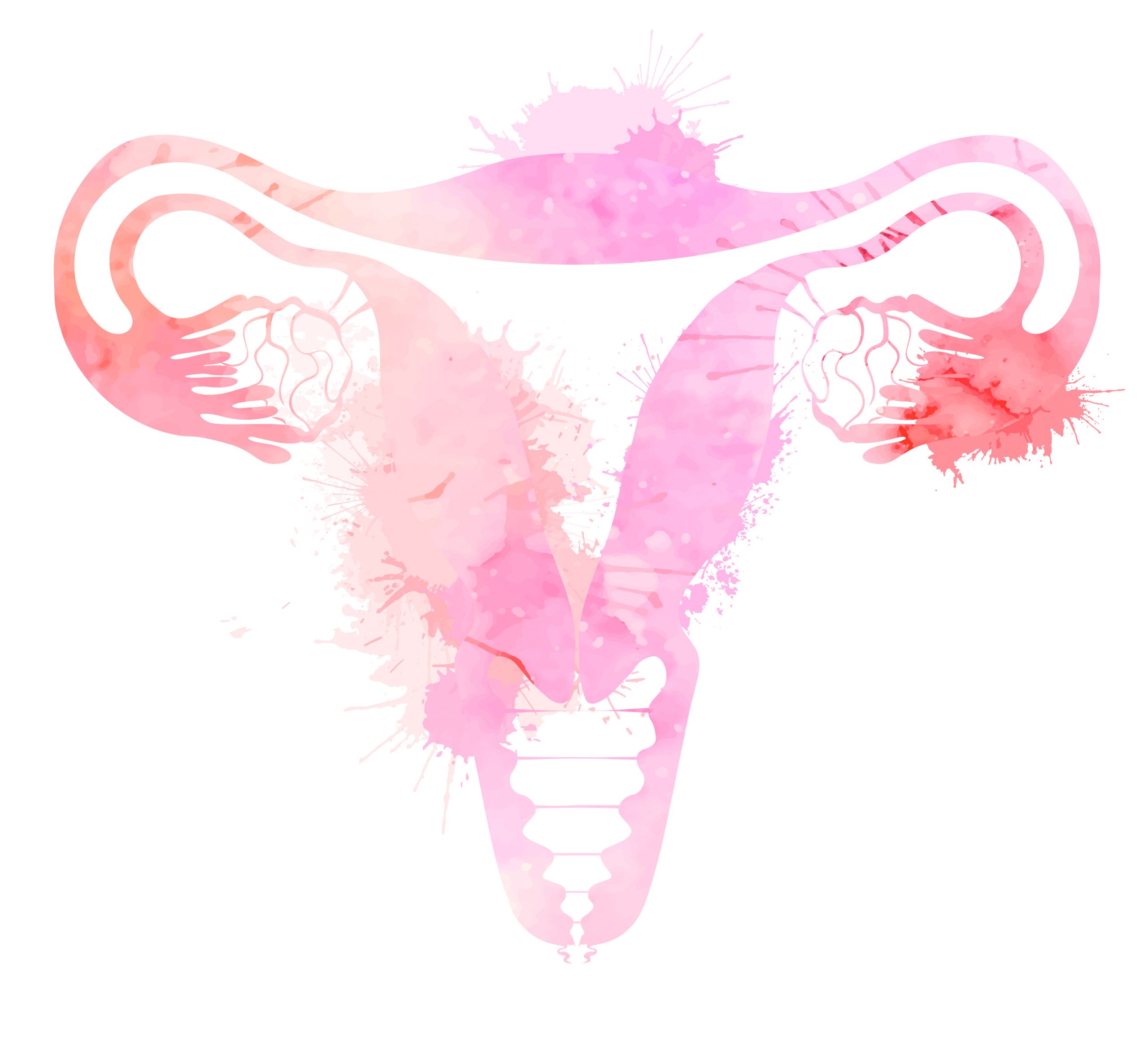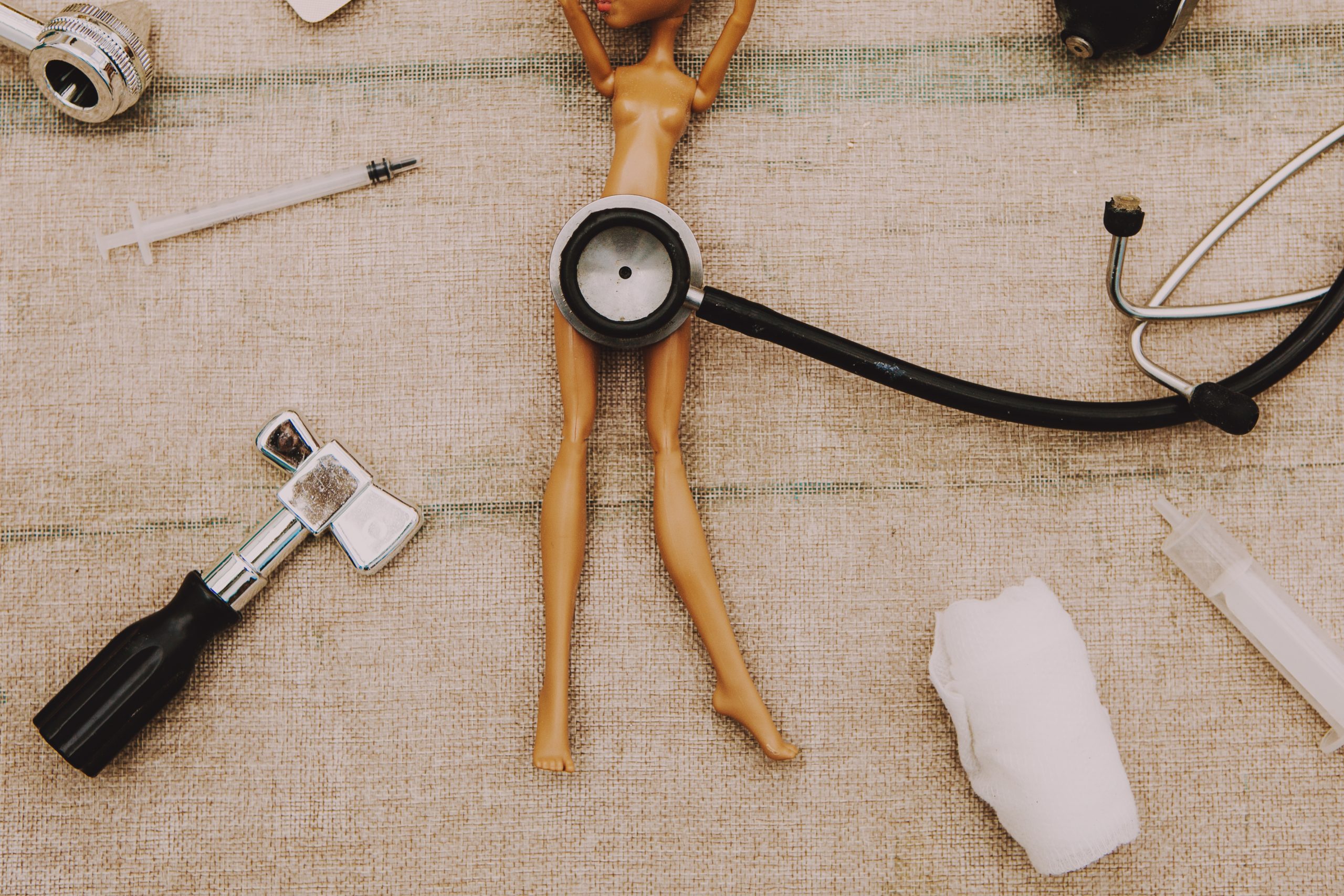How old wisdom about menstruation unlocks higher performance.
From Fertility Goddess to Artificial Uterus

Which way, Western woman?
Long ago, on a cold and desolate plain, our ancient ancestors sat carving statues of Lizzo. Okay, not Lizzo exactly. But close. When the hip hop singer arrived in a see-through dress at Cardi B.’s birthday party several weeks ago, it was hard not to make the comparison. There were the pendulous breasts, enormous hips, and ample belly depicted in those little prehistoric fertility figurines. An ancient fertility goddess come to life.
Come to life, and twerking against a table. Which is not what you’d expect of a fertility goddess, exactly. Somewhere, in the tens of thousands of years between the figurines and the Fitness singer, something has gotten lost in translation.
No one knows for sure what the purpose of the small figurines known as “Venus statues” actually was—what exactly they meant to the ancient peoples who carved them. But the generally accepted theory is that they were fertility talismans of some sort. The exaggerated breasts, belly, hips, and vulva imply all the necessary features for the creation and sustenance of new life. The absent, or only crudely sketched, head, arms, and legs imply that these features were not the point—unnecessary for the function these figurines served. The sculptures point to something miraculous, sacred, and unique to women: the ability to grow and sustain life.
For all of human history, women have had to grapple with the fact that their naked bodies are necessary for the survival of the species. Unlike men, whose role in reproduction takes place in a moment, women spend nine months growing each new baby inside their bodies and many more months—or sometimes years—feeding it from their bodies. In fact, this miracle of human reproduction—the harboring and sustaining of new life—is, in essence, what makes a woman a woman. It’s what makes women special. Sets us apart from men. Women can do this. Men cannot.
No matter how you choose to live your life, being born male or female means something in and of itself. Our lives are shaped and defined by the abilities and restrictions of our bodies. This used to be taken for granted. No longer. Yes, women are still the ones who bear the children (for now), but we’ve come a long way from the mystical reverence of female reproduction depicted in those Venus statues. Calls for equal rights for women have morphed into assertions that there ought not to be genders at all. That sex differences are determiners of nothing. But to make this a reality, women must be uncoupled from childbearing.
Back in 2017, scientists successfully transferred an extremely premature lamb to an artificial uterus, which kept it alive long enough to become viable outside the womb. Today, researchers in Israel are growing mouse embryos in test tubes and hope to do the same, one day, for humans. While the notion of growing a human completely outside of a uterus is a long way off, it’s by no means science fiction. The notion of childbearing becoming completely disassociated from femininity is one that society will eventually have to grapple with.
For those who look for a world without sexes, this is incredible progress. In fact, it’s the goal. Because if the parts that make a woman a woman and a man a man no longer serve any functional purpose, it’s much easier to argue that sex and gender are effectively moot. A man who feels that he ought to have been born a woman can say with conviction that he is one (rather than that he’d like to be treated as one). James Bond can just as easily be a woman as a man. The achievements of trans women in sports or politics can be counted as wins for feminism. And, if artificial uteruses become a reality, women can waltz off to work and leave their babies cooking at home.
There’s only one problem: our flesh has meaning. It isn’t arbitrary or random or wrong. We aren’t “assigned” a sex at birth, we are born into one. And its function defines who we become. Even if a woman chooses not to use her body to create new life (or finds that she cannot), she is still awash with female hormones which affect her basic urges, personality, and drives. Her brain is wired differently from a man’s, which causes her to have innately different strengths, abilities, and desires. And these differences—like a stronger connection to emotion, or a greater willingness to care for her young—can all be connected in some way to childbearing and motherhood. A female human is not a male human. They are two distinct and biologically different entities.
We might be able to go to technological war against our bodies, but it’s a war we cannot win. Pretending that our biological differences aren’t there denies that we’re inextricably linked with our bodies—a bond that cannot be destroyed. We are a chemical, physical, and spiritual cocktail. And, for women, our bodies come equipped with the ability to sustain new life. It’s a miracle, a superpower, something to be revered and held sacred. To carve little statues about.
If a woman’s breasts, belly, vulva, and hips are no longer special for their function, we’re left with Lizzo, twerking against a table in a see-through dress. It’s carnal, empty, and somewhat distasteful. It twists the flesh into a parody of the body, pretending its meaning is entirely ours to celebrate or to debase. Lizzo—and all the rest of us—are being denied something, not given a gift. We are flesh, and a woman’s flesh is miraculous. We’ve come a long way from our prehistoric ancestors, but in this, at least, they knew better.
The American Mind presents a range of perspectives. Views are writers’ own and do not necessarily represent those of The Claremont Institute.
The American Mind is a publication of the Claremont Institute, a non-profit 501(c)(3) organization, dedicated to restoring the principles of the American Founding to their rightful, preeminent authority in our national life. Interested in supporting our work? Gifts to the Claremont Institute are tax-deductible.
Our human bodies cannot be reduced to interchangeable commodities.
You don't need a study to tell you what common sense confirms.
From the CDC on down, medical institutions have betrayed our trust too many times.
Conservatives and feminists must unite against technocratic effacement.





